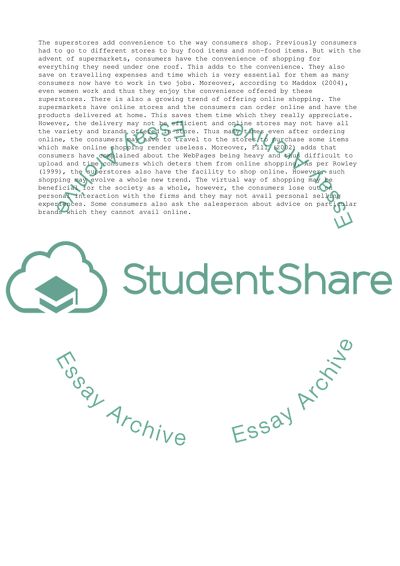Cite this document
(“Supermarkets in the UK Retail Market: Integrated Marketing Research Paper”, n.d.)
Supermarkets in the UK Retail Market: Integrated Marketing Research Paper. Retrieved from https://studentshare.org/business/1561207-studying-for-business-report-and-essay
Supermarkets in the UK Retail Market: Integrated Marketing Research Paper. Retrieved from https://studentshare.org/business/1561207-studying-for-business-report-and-essay
(Supermarkets in the UK Retail Market: Integrated Marketing Research Paper)
Supermarkets in the UK Retail Market: Integrated Marketing Research Paper. https://studentshare.org/business/1561207-studying-for-business-report-and-essay.
Supermarkets in the UK Retail Market: Integrated Marketing Research Paper. https://studentshare.org/business/1561207-studying-for-business-report-and-essay.
“Supermarkets in the UK Retail Market: Integrated Marketing Research Paper”, n.d. https://studentshare.org/business/1561207-studying-for-business-report-and-essay.


